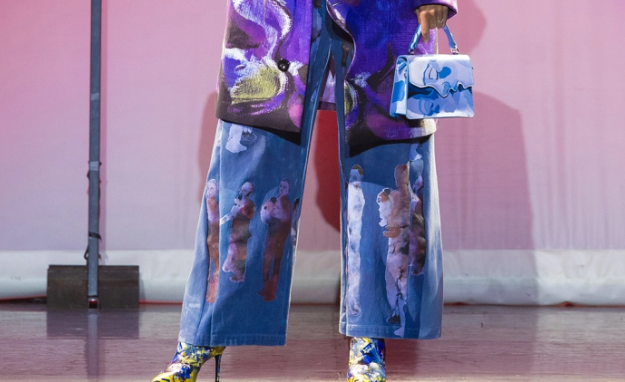Here’s Why Some Luxury Players Are Faring Much Better Than Others This Earnings Season
In the last week, luxury companies have announced divergent results for their most recent quarters.
Tapestry, the New York-based parent company of Coach, Kate Spade and Stuart Weitzman, this week raised its outlook for the full fiscal year 2023 after it beat expectations in the holiday season. Ralph Lauren also beat sales expectations, noting a solid performance across multiple regions, including China. On the other hand, Capri Holdings, which owns Michael Kors, Jimmy Choo and Versace, missed forecasts for the third quarter and trimmed its guidance.
Overall, retail executives and analysts have adopted an optimistic view for luxury going into 2023, thanks to the sector’s base of high-income consumers who are more resilient to higher prices and recession fears. And while Tapestry, Capri Holdings and Ralph Lauren all play in a similar luxury lane, each company has a different breakdown when it comes to channel penetration and international distribution. This has led to disparate results during a volatile environment.
Ralph Lauren, in particular, was a standout this quarter, in part due to the success of a recent turnaround plan focused on streamlining its retail strategy and doubling down on its direct channels. The retailer said it plans to open more than 250 stores over the next three years, focusing on 30 top cities around the globe as president and CEO Patrice Louvet aims to reestablish its standing as a strong luxury fashion player.
“Part of the reason for Ralph Lauren’s relative outperformance is that it is at an earlier stage of reinvention compared to brands like Coach or Michael Kors,” explained GlobalData managing director Neil Saunders in a statement. “As such, it still reaping the rewards of many of the corrective actions it is taking to elevate its offer and reduce its reliance on third parties to sell its product.”
The problem with wholesale
Relying on wholesale partners turned out to be a challenge for various luxury players this quarter, as department stores and other wholesale retailers pulled back on orders to deal with inventory excesses and waning consumer demand. This weakness in wholesale took a hit on companies that rely on that channel, such as Steve Madden and Capri.
“Capri’s weak report was due to challenges in its wholesale channel,” said UBS analyst Jay Sole in a Thursday note. “Since Tapestry has a very small wholesale business, it was less affected by this trend.”
Capri’s wholesale revenues dropped 20% drop in Q3, with major challenges in North America largely due to price increases. Capri chairman and CEO John Idol told analysts that the company is planning for the wholesale business to be down “quite significantly” in the fourth quarter and into the first quarter of next year.
Like Tapestry, Ralph Lauren also noted a tough wholesale environment but was overall less impacted by the slowdown there.
Ralph Lauren CFO and COO Jane Nielsen said the company has experienced “minimal cancellations” for spring 2023 and still expects wholesale revenues to be up in Q4, despite caution in the marketplace.
China impact
China has also been a challenging area for luxury brands this quarter. After months of closures and shutdowns, new waves of Covid-19 have gripped the country as it reopens to travelers and discards its zero-COVID policy. Global footwear companies have been cautiously optimistic about how the reopening will improve business — and progress has varied.
Tapestry’s sales in China dropped 20% in the quarter due to Covid-19 related issues, which especially impacted the Stuart Weitzman brand. However, the company said it saw a lift during the Lunar New Year after the country lifted its containment restrictions.
Capri said revenue in Mainland China “declined significantly” in the quarter due to Covid-19 cases surging as the country reopened.
Ralph Lauren, on the other hand, reporting that sales in Mainland China were up in the high single digits, despite Covid-19 disruptions and the previous closure of more than 90% of the company’s stores there. The company expects further recovery in the region as the brand strengthens local ties with Chinese consumers.
“We’ve been very encouraged by the reopening. We are now up and running everywhere, and we’re seeing consumers reengage strongly,” said Louvet in a call with analysts. “The work that the teams are doing on brand desirability in China is really resonating with the consumer, and they’re weaving the brand into the local fabric of the Chinese culture in a way that really sets us apart.”
Goldman Sachs analysts noted this edge in a Thursday note, describing Ralph Lauren’s momentum in China as “outperforming peers.”
“We believe that the company’s key city investments and brand elevation strategies are helping to support sequential strength, particularly in China,” the analysts wrote.
